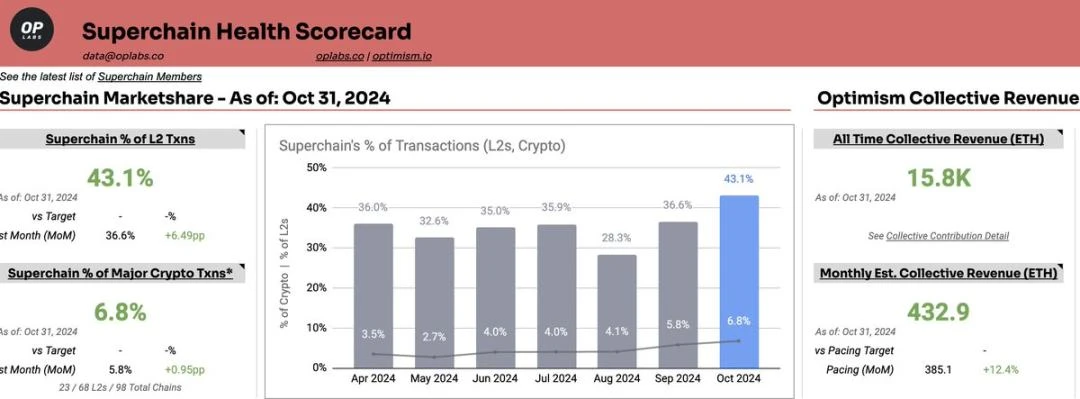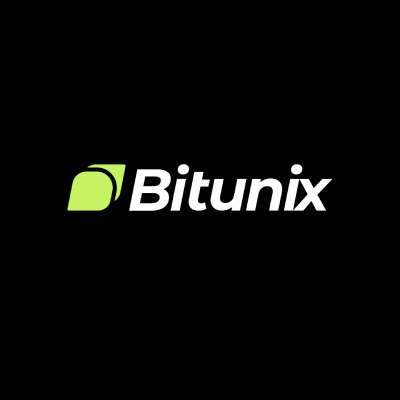原作者:浩天(X: @tme l0 211 )
After looking at the table of @Optimism Superchains profit and ecosystem data over the past year, I extracted several key indicators to share:
1) OP Superchain has earned a total of 15,849 ETH so far, of which @base contributed 2,878 ETH. The income structure is as follows: OP Mainnets on-chain net profit + OP Stack chains 15% on-chain net profit share/2.5% of total income); since this data is not directly compared with other L2s income data, it will not be evaluated.
2) The OP Superchain ecosystem has expanded to 35 chains, including 33 L2 chains and 2 L3 chains. The statistics may not be complete, as more than half have not yet been launched, but it shows that the OP Stack is developing rapidly.
3) Base chain is the best developed chain in the Superchain ecosystem, with daily Txns of 6.9 M and monthly Txns of 205 M, which is 10 times that of OP Mainnet鈥檚 22 M. It can be seen that the decision to incorporate Base into the Superchain was very successful.
4) In April when the market conditions were good, Superchain earned 1,189 ETH in a single month, of which Base accounted for 48.4%, OP Mainnet accounted for 51%, and other chains accounted for 0.6% in total. It can be seen that the strategic effect of OP Stack is currently manifested on the Base chain, and other L2 alliances have not yet gained momentum.
5) The 48.4% revenue that Base Chain contributes to Super Chain only accounts for 15% of its total revenue, while the 51% contributed by OP Mainnet is all of its net profit, which shows that the actual revenue of Base Chain is quite considerable, about 6 times that of OP Mainnet.
In general, this data can truly reflect the current development status of OP SuperChain. It is still in its early stages. Only the Base chain has been launched, and other chains are still in their infancy.
Strangely, this table does not list OP Superchain鈥檚 expenses, but we can make a rough estimate through other public data.
Recently, OP provided Kraken with 25 million OP tokens to develop the new OP Stack layer 2 network Ink, which is a big deal. Its six consecutive rounds of RetroFund have also distributed more than 60M OP tokens. The OP tokens it promised to the Base network account for 2.75% of the total supply (given in six years), plus its occasional sponsorship or resource replacement expenses for some specific networks. This part of the expenditure is not small: (The following is a rough estimate, inaccurate for reference only)
Not to mention the investment in incentives for developers and the community ecosystem, let鈥檚 just take Base as an example and calculate the input and output.
Investment: 4.3 billion OP * 2.75% = 118 million OP % 6 = 20 million OP / year; Income: Contributed 2,500 ETH in the past year (Since Base has been online for 15 months, a total of 2,878 ETH minus 3 months of income). Based on the current prices of ETH and OP, it is equivalent to an investment of $30 million in cost and a return of $6.25 million.
In literal comparison, it is 去中心化金融nitely a losing business. Of course, if the OP Foundation does not regard $OP expenditure as cost…
I still don鈥檛 understand why layer 2 has reached a development deadlock. This question is too difficult to answer, but the problem may lie in these data details.

This article is sourced from the internet: Data interpretation: Is OP Super Chain a good business to make money?
相關:Sui生態中領先的DEX Turbos Finance如何在Meme市場中脫穎而出?
Since the beginning of August, Turbos鈥檚 locked value (TVL) has rapidly climbed from $8 million to $18.4 million today, an increase of about 130%. As the most popular centralized liquidity market maker (CLMM) DEX on the Sui chain, Turbos has become the leading platform for Sui protocol project parties to issue Meme tokens and has achieved good results. Since the launch of the platform, Turbos has reached a total of 346,000 active accounts and a cumulative transaction volume of over $2.4 billion, demonstrating its strong user base and market demand. All this shows that Turbos Finance is leading the future development of the Sui ecosystem and becoming the core driving force of Meme transactions. This article will review the transaction volume and data performance of various Meme coins on the…







